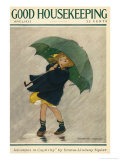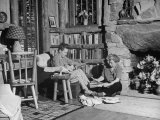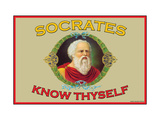|
|
|
Lydia Sigourney
née Huntley
b. 9-1-1791; Norwich, CT
d. 6-10-1865
Poet Lydia Sigourney, known as the “Sweet Singer of Hartford”, was such a popular figure in the mid 19th century that lyceum type study groups were formed named after her - such as the the Sigournean Club of Olathe, KS.
Lydia Sigourney quotes ~
• “In early childhood you may lay the foundation of poverty or riches, industry of idleness, good or evil, by the habits to which you train your children. Teach them right habits then, and their future life is safe.”
• “The strength of a nation, especially of a republican nation, is in the intelligent and well ordered homes of the people.”
|
|
|
|
Gene Simmons
b. 8-25-1949; Israel
Gene Simmons taught elementary school in Spanish Harlem (among other jobs) before co-founding KISS in 1973.
|
|
|
|
Elisabetta Sirani
b. 1638; England
d. 1665
Elisabetta Sirani, the daughter of a painter, was noted in her short lifetime for her portraits, mythological, Holy Family, and Virgin and Child paintings, drawings and etching. By the time she was nineteen she was running the family workshop and supporting her parents and siblings. She was also a noted teacher. After she died suddenly at the age of twenty seven, it was discovered she suffered from ulcers.
• Women Artists posters
|
|
|
|
Jessie Willcox Smith
b. 9-6-1863, Philadelphia
d. 5-3-1935
Illustrator Jessie Willcox Smith, who was a kindergarten teacher when she took her first art class, went on to illustrate ads for Cream of Wheat, Campbell’s Soup, the Red Cross, Ivory Soap, and Morton Salt, as well as covers for Good Housekeeping magazine.
Jessie Wilcox Smith, with Elizabeth Shippen Green and Violet Oakley, were called the Red Rose girls because they shared lodgings and studios at the Red Rose Inn.
|
|
|
|
Lillian Smith
b. 12-12-1897; Jasper, FL
d. 9-28-1966
Social critic and activist Lillian Smith is best remembered for her best-selling 1944 novel Strange Fruit. Smith, Southern born and raised, openly supported unpopular stances on the issues of race and gender equality, calling for the removal of Jim Crow laws. Lillian Smith was also a teacher, the director of the family owned girl's summer camp, and publisher with long time companion Paula Snelling of the literary magazine South Today.
Lillian Smith quotes ~
• “Education is a private matter between the person and the world of knowledge and experience, and has little to do with school or college.”
• “When you stop learning, stop listening, stop looking and asking questions, always new questions, then it is time to die.”
• “Rich folks always talk hard times.”
• “Faith and doubt both are needed - not as antagonists, but working side by side to take us around the unknown curve.”
|
|
|
|
Socrates,
(ca. 470 BC-399 BC)
The philosopher Socrates lived during the classical Greece period, teaching followers who attached themselves to his dialogue discussion groups.
Socrates was sentenced to death after being found guilty of being an atheist and corrupter of youth. His execution was to drink the poison hemlock.
Socrates' trial, the last days, and death are described by Plato in the dialogues Apology, Crito, and Phaedo. Other information about his life are from Aristotle, Xenophon, and the playwright Aristophanes.
Socrates quotes ~
• “As for me, all I know is that I know nothing.”
• “Wisdom begins in wonder.”
• “The only true wisdom is in knowing you know nothing.”
• “Employ your time in improving yourself by other men's writings, so that you shall gain easily what others have labored hard for.”
• “False words are not only evil in themselves, but they infect the soul with evil.”
• “He is richest who is content with the least, for content is the wealth of nature.”
• “Let him that would move the world first move himself.”
• “The unexamined life is not worth living for a human being.”
• “...if you think that by killing men you can avoid the accuser censoring your lives, you are mistaken; that is not a way of escape which is either possible or honorable; the easiest and the noblest way is not to be crushing others, but to be improving yourselves.”
• “I would rather die having spoken in my manner, than speak in your manner and live.”
• “One who is injured ought not to return the injury, for on no account can it be right to do an injustice; and it is not right to return an injury, or to do evil to any man, however much we have suffered from him.”
• “Worthless people live only to eat and drink; people of worth eat and drink only to live.”
about Scorates~
• “Every human being has, like Socrates, an attendant spirit; and wise are they who obey its signals. If it does not always tell us what to do, it always cautions us what not to do.” ~ Lydia Maria Child
• “Just as Socrates felt that it was necessary to create a tension in the mind so that individuals could rise from the bondage of myths and half-truths to the unfettered realm of creative analysis and objective appraisal, we must we see the need for nonviolent gadflies to create the kind of tension in society that will help men rise from the dark depths of prejudice and racism to the majestic heights of understanding and brotherhood.” ~ Martin Luther King, Jr., Letter from the Birmingham Jail, April 16, 1963
• “Socrates gave no diplomas or degrees, and would have subjected any disciple who demanded one to a disconcerting catechism on the nature of true knowledge.” ~ George Macaulay Trevelyan
|
|
|
|
Joel Elias Spingarn
b. 5-17-1875; New York City
d. 7-26-1939
Professor of comparative literature at Columbia University from 1899 to 1911, and one of the founders of Harcourt, Brace and Company, Joel Elias Spingarn is best remembered today as a Progressive politically and a civil rights activist.
Spingarn was one of the first Jewish leaders of the National Association for the Advancement of Colored People (NAACP) and is the namesake of the Spingarn Medal.
Arthur Spingarn, brother of Joel, was also active in NAACP.
|
|
|











